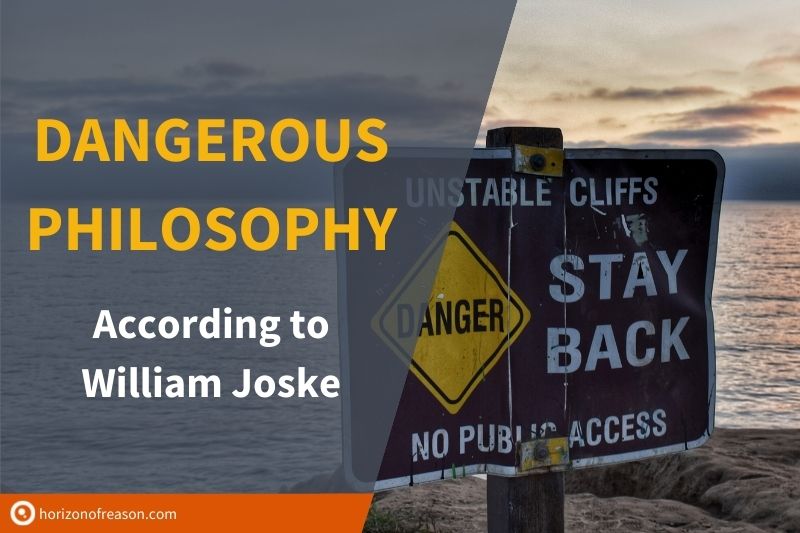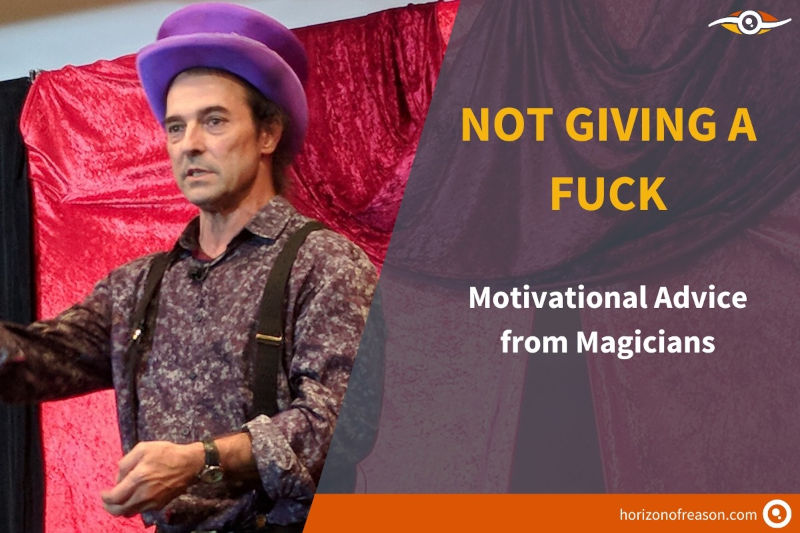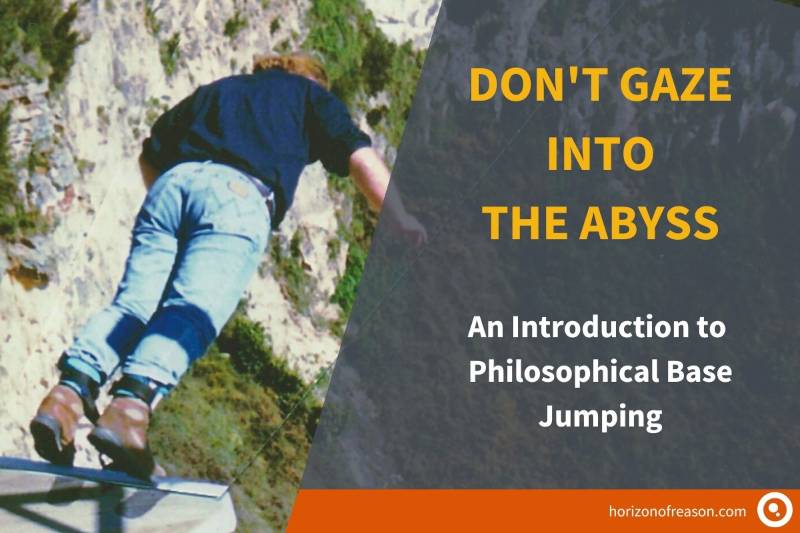
Dangerous Philosophy: Meaning of Life and William Joske

Peter Prevos |
1511 words | 8 minutes
Share this content
William Joske was the chair in Philosophy from 1969 to 1993 at the University of Tasmania. He argues that most commonly held philosophical positions are not able to show that life has meaning, by showing life to be futile.1 Joske disagrees with many other philosophers who claim that philosophical positions are neither able to demonstrate the insignificance of life, nor can they provide a secure foundation for existential optimism. Joske wrote that:
Philosophy is indeed dangerous stuff, and it is fitting that it should be approached with fear.
In this paper, Joske's view on the ways in which certain philosophical theories might threaten the meaningfulness of life, will be outlined. It will be argued that these views indeed can show life to be futile and that philosophy is dangerous to those who do not handle it with the respect it deserves.
Meaning and futility according to William Joske
According to William Joske, the question “What is the meaning of life” is problematic because both the words meaning and life are not clear. Meaning can be construed to be either linguistic (that which is signified by a word or expression) or existential meaning (significance). What Joske is concerned with is existential meaning. This ambiguity is intrinsic to the English language and does, for example, not exist in Dutch or German, where there are distinct words for linguistic and existential meaning, i.e. 'zingeving' and 'betekenis' in Dutch and 'Sinn' in German.
In this question, life can be interpreted on three different levels. Joske is not concerned with biological life or individual life styles. Joske is concerned with whether or not the typical human life style can be given significance.
The life style of a species is “the pattern of behaviour which an animal follows because it is a member of that species”. The human life style, Joske is concerned with, is thus an activity. The question whether life has meaning should be approached the same way as when asking this question about an activity There are, according to Joske, four elements to meaninglessness, an activity can be:
- Worthless (lacking intrinsic merit)
- Pointless (not directed towards the fulfilment of an end)
- Trivial (lacking sufficient worth)
- Futile (the world prevents achievement of the required end).
An activity—the human life style—is fully meaningful if it suffers from none of the four defects. On the other end of the scale, an activity is valueless if it suffers from all of the four defects. Valuable activities are those which are worth performing even though they fall short of the fully meaningful and suffer from at least one of the above mentioned defects.
Joske believes that the most popular contemporary philosophical doctrines result in the idea that the human life style is futile and can therefore not be fully meaningful. It is because philosophy can not show life to be fully meaningful that Joske considers philosophy to be dangerous.
The Naked Ape
Desmond Morris argues that to be able to fully understand human behaviour, we should view ourselves in the same way as we view animals. He refers to the cultural achievements of mankind as a ‘surface gloss' under which we are still primates.2
According to Joske, "if we see people as naked apes, we cannot but be cynical concerning the superstructure of justification associated with many of the most memorable human enterprises". If the Naked Ape hypothesis is true, then the human life style becomes futile, because our activities are "a mere epiphenomenon of creatures ignorant of the true springs of their actions".
Joske, however, also writes that if we treat human beings as a biological species, we encounter difficulties when we try to define what the human life style is. Homo Sapiens is unlike any other mammal because we display no fixed patterns of behaviour. We are less like other mammals because we have a choice and possess the faculty of reason.
The diversity of human behaviour and the fact that there are many different cultures, softens the Naked Ape hypothesis. It only softens the hypothesis because underneath our rationality we are still to a large extent driven by our instincts and natural desires. The softened hypothesis does, however, not remove futility from the human life style as still a lot of our activities and ventures are driven by instinct, and not directed towards a final end.
Moral Subjectivity
Some people sacrifice their happiness and even their lives for, what most people would consider hopeless causes and are even admired for making such sacrifices.
This attitude can only make sense if ultimate value judgements can possess absolute truth. If, however, moral subjectivism—the view that value judgements can not possess absolute truth or falsity—is true then all self sacrifice is futile and the martyr turns out not to be an admirable hero, but a pitiful fool.
Some might object to this line of reasoning, by saying that a person can have no better reason for acting a certain way than acting in accordance with their innermost being, even though this would be futile from an external point of view. This is, according to Joske, an ironic misfortune because, if the best reason we have to act fails to ‘fit the nature of the universe', then the rational act becomes futile. If moral subjectivism is true we can thus not find any objective values for our actions and life becomes futile.
Ultimate Contingency
Joske claims that many philosophers subscribe to a Humean scepticism regarding our ability to discover ‘laws of nature' and to utilise these to cope with and explain the world around us. The core of Hume's problem of induction is the claim that all probable arguments presuppose that the future resembles the past.
Joske concludes that, if the Humean world view is correct, we cannot be consistent in our attempt to construct rational models of the world. Reason, however, demands consistency, so all scientific endeavours become, according to Joske, futile. What Joske has not shown is exactly how life becomes futile if we are not able to rationally justify the foundations of scientific thinking. Hume's argument for scepticism draws no conclusions about the possible futility of life. Scepticism about science does not lead to futility. But vice versa, scientific thinking has historically paved the way for atheism, as the existence of God can not be empirically verified.
Atheism
In theistic philosophy, God has traditionally been used as the guarantee for objective values and to justify our hope that there is a purpose in life. Joske does not believe that the theists have succeeded in adequately grounding objective values in the nature of God because, the concept of God, as a foundation of objectivity in the universe, is inquiry limiting.
Many philosophers find the idea that our lives are being overseen by a superior being in order to serve some higher purpose objectionable. Kurt Baier writes that it "is degrading for a man to be regarded as merely serving a purpose".3 It does not follow from atheism that a person has no reason to continue living, to regard any activity as worthwhile, but it does, according to Joske, open up the possibility that human life contains an element of absurdity and that life is futile.
The Naked Ape hypothesis and moral subjectivism are both results of atheism. A religious point of view would not produce such ideas. The denial of God as the creator of the universe and mankind as the crown upon that creation leads to the understanding that we are equal to all other mammals. Without reference to a transcendent reality, it is impossible to find a solid foundation for objective moral values. On the other hand, the transcendent is neither a solid foundation for values, as it is not empirically verifiable.
Dangerous Philosophy
Joske has shown that philosophy can be a dangerous activity. Some commonly held philosophical views can lead to the conclusion that the human life style is futile and that therefore, life is not fully meaningful. Joske warns, however, that we are not justified in rejecting a philosophical view because it results in the idea that life is futile. We are not entitled to believe in God simply because it would make our lives meaningful.
We are left in an existential limbo without any anchor points for values, which are ultimately the vehicle for meaning of life. The acknowledgement that philosophy shows life to be futile can lead to a meaninglessness crisis, which for some has resulted in suicide. Philosophy is a venomous crystal.
Anyone looking into the crystal, runs the risk of being poisoned by its beauty. Just like shamans in primal religions are able to use venomous plants to gain wisdom, without getting killed, are philosophers those who are able to embrace philosophy, without concluding that life is not worth living.
Notes
W.D. Joske, ’Philosophy and the meaning of life’, Australasian Journal of Philosophy 52 (1974):2.
Desmond Morris, The naked ape, (New York: Dell Publishing, 1967), p. 23.
Kurt Baier, 'The meaning of life', in: E.D. Klemke, editor, The meaning of life, 2nd edition. (Oxford University Press, 2000).
Share this content


